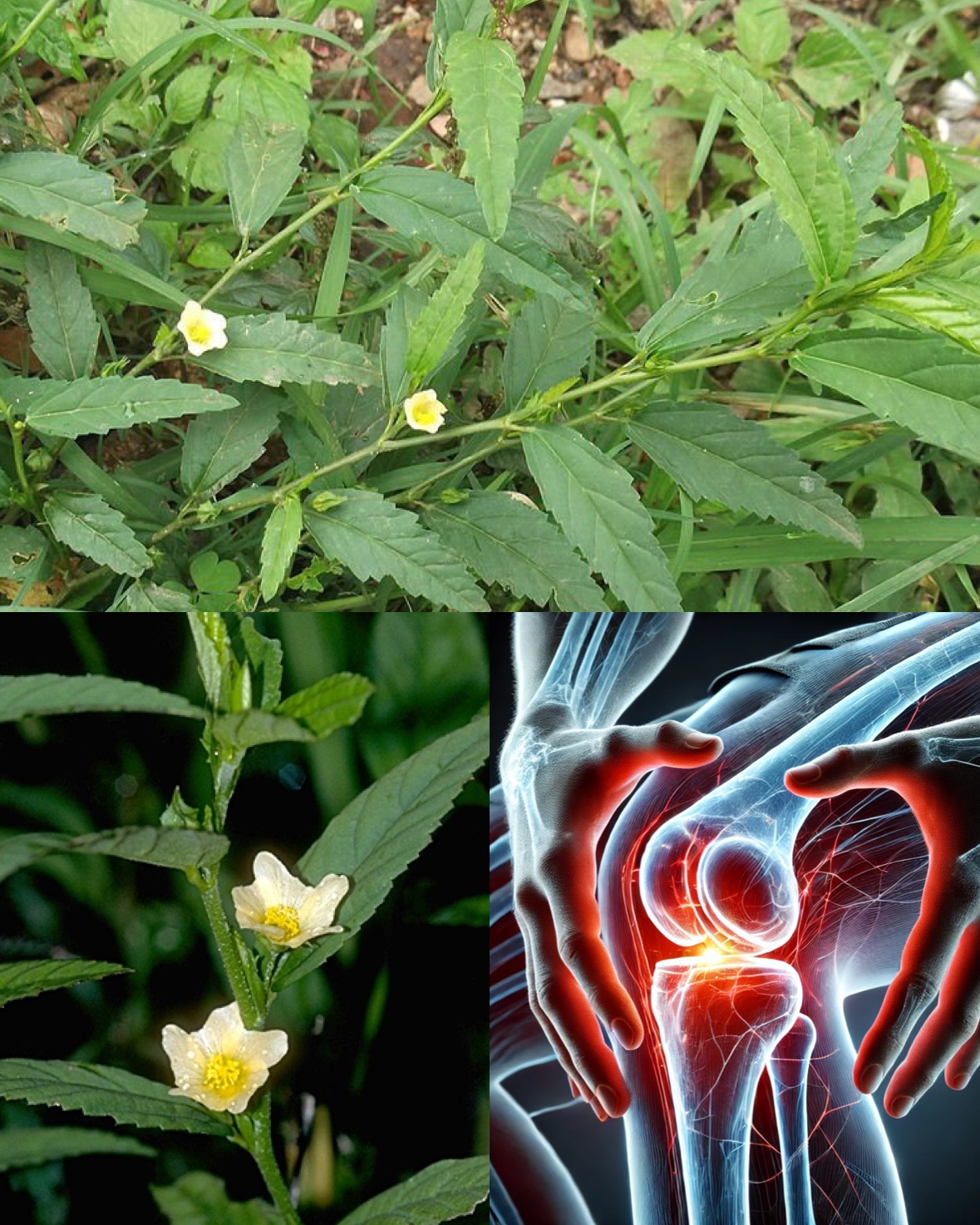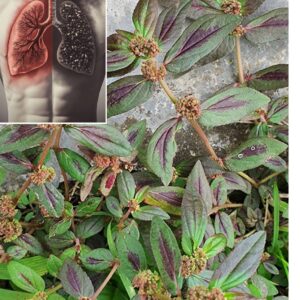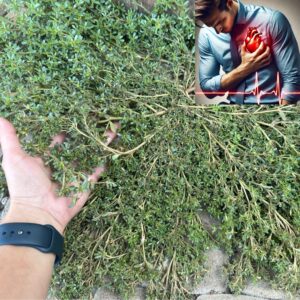The Hidden Power of Stubborn Grass: Nature’s Humble Treasure You Didn’t Know You Had

Most gardeners see stubborn grass merely as a frustrating weed that refuses to leave, no matter how much they try to eradicate it. However, behind this nuisance lies a hidden power, an extraordinary unpretentious wonder of nature with countless untapped benefits. This resilient plant is more than just an invader of lawns—it’s actually a hidden gem with surprising benefits for your health, environment, and garden.
Stubborn grass, often called crabgrass or Bermuda grass, has earned its name from its exceptional persistence and ability to thrive in almost any condition. Whether it’s hot sun, drought, or depleted soil, stubborn grass refuses to surrender. Gardeners tirelessly battle to eliminate it, but few pause to consider why it grows so vigorously in the first place. Its ability to flourish in adverse conditions reveals its extraordinary resilience and hints at deeper, overlooked benefits.
One of the most impressive qualities of stubborn grass is its remarkable ability to prevent soil erosion. Its roots penetrate deep into the soil, anchoring it firmly in place and preserving essential nutrients. In areas prone to flooding or erosion, stubborn grass can actually play a vital ecological role, saving your yard or farmland from degradation and preserving its long-term fertility.
Beyond ecological benefits, stubborn grass also plays a surprising role in supporting biodiversity. Its dense structure provides habitat and food for beneficial insects like ladybugs and beetles, which in turn control harmful pests. Even small wildlife, such as rabbits and birds, rely on these grassy areas for cover, nesting, and food. Far from being merely a garden invader, this hardy grass becomes the foundation for a thriving micro-ecosystem.
Stubborn grass has long been used in traditional medicine in various cultures, often overlooked in modern times. In some ancient healing traditions, extracts from stubborn grass were used to treat inflammation, respiratory illnesses, and even digestive disorders. Recent scientific research has begun to acknowledge these healing properties, confirming that stubborn grass contains antioxidants, fiber, and other beneficial nutrients that can help support a healthier lifestyle.
Interestingly, stubborn grass is also extremely drought-resistant, making it ideal for cultivating in areas where water conservation is a priority. Unlike typical garden plants that require constant watering, this grass thrives even in harsh conditions, absorbing minimal moisture and remaining lush and vibrant. This resilience not only makes it sustainable but helps conserve water resources, making it an environmentally responsible choice.
Many gardeners underestimate stubborn grass’s value as an organic mulch and fertilizer. Grass clippings from stubborn grass contain nitrogen, potassium, and phosphorus—essential nutrients for healthy plant growth. By using stubborn grass cuttings as mulch or compost, gardeners can provide their crops with essential nourishment, significantly improving soil quality naturally, without chemical additives.
In addition to its agricultural value, stubborn grass acts as a natural air purifier. Like all green plants, it absorbs carbon dioxide and releases oxygen, improving air quality and creating a healthier living environment. Its dense growth efficiently traps dust and pollutants, making it beneficial even in urban gardens. This natural purification system demonstrates that stubborn grass’s potential goes far beyond aesthetics.
Its resilience also offers inspiration, symbolizing perseverance and adaptability. In a symbolic sense, stubborn grass teaches valuable lessons about resilience in the face of adversity. Gardeners often become frustrated by its persistent nature, yet this same persistence can be viewed as inspirational. The stubborn grass is a living reminder that even when conditions seem impossible, life finds a way to flourish.
Finally, stubborn grass offers a unique, low-maintenance landscaping solution. Its hardiness and quick growth make it perfect for busy individuals or those new to gardening. Instead of constant mowing and weeding, embracing stubborn grass as part of your landscaping means less work and more natural beauty, highlighting the charm in simplicity.
In conclusion, stubborn grass is not a nuisance—it’s a resilient wonder with countless hidden powers waiting to be acknowledged. Its medicinal properties, environmental benefits, sustainability, and unmatched resilience make it one of nature’s most valuable plants. Rather than waging endless battles against it, perhaps we should embrace and appreciate the incredible, unpretentious wonder that stubborn grass truly is.
News
Be Happy Movie Review: Abhishek Bachchan’s Latest Venture Faces Mixed Reactions – Another Flop?
Be Happy Movie Review: Abhishek Bachchan’s Latest Venture Faces Mixed Reactions – Another Flop? Abhishek Bachchan’s much-anticipated movie Be Happy has finally hit the screens, but unfortunately, it seems the film has failed to live up to the high expectations…
Chaos in Bachchan Household: Amitabh and Ajitabh’s Bond Shatters Amid Explosive Clash
Chaos in Bachchan Household: Amitabh and Ajitabh’s Bond Shatters Amid Explosive Clash Bollywood’s most respected family faced unexpected turmoil as shocking news emerged from Amitabh Bachchan’s iconic Jalsa residence. Reports surfaced of a heated altercation between the legendary actor and…
Manisha Koirala’s Shocking Allegation: Aishwarya Rai Behind Miss World Controversy
Manisha Koirala’s Shocking Allegation: Aishwarya Rai Behind Miss World Controversy In the glitzy corridors of Bollywood, where friendship and rivalry walk hand-in-hand, a storm erupted as veteran actress Manisha Koirala boldly spoke out about Aishwarya Rai, alleging a startling claim…
Midnight Raid Unveils Orry’s Secret Party Scandal
Midnight Raid Unveils Orry’s Secret Party Scandal The city’s luxurious Sapphire Hotel stood illuminated against the midnight sky, its neon glow masking the secrets hidden within its extravagant suites. Orry, a well-known socialite infamous for his lavish lifestyle, had always…
If You Have This Leaf in Your Compound, You Actually Have Gold—But You Don’t Know It
If You Have This Leaf in Your Compound, You Actually Have Gold—But You Don’t Know It Nature is full of hidden treasures, and some of them could be right in your own backyard, quietly waiting to be discovered. One of…
The Superfood That Tastes Better Than Meat – 7 Reasons to Grow It in Your Garden
The Superfood That Tastes Better Than Meat – 7 Reasons to Grow It in Your Garden When people think about delicious, satisfying food, they usually imagine juicy steaks, flavorful burgers, or succulent chicken dishes. But what if there were a…
End of content
No more pages to load








 At Ayan Mukherjee’s Fateh Prayer Meet.
At Ayan Mukherjee’s Fateh Prayer Meet.


